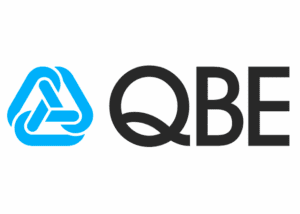What does “historic” Florida legislation mean for struggling insurance market?

“The issues in Florida’s property insurance market did not occur overnight, and they will not be solved overnight,” DeSantis said.
“The historic reforms signed today create an environment which realigns Florida to best practices across the nation, adding much-needed stability to Florida’s market, promoting competition, and increasing consumer choice.”
The new legislation was passed with the state’s insurance market in what Senator Jim Boyd, chair of the Senate Committee on Banking and Insurance, has described as “freefall”.
“Seven carriers have gone insolvent in the past two years, reinsurance is shrinking in the global markets as costs are going up, and Citizens Property Insurance is ballooning once again, creating huge liabilities for taxpayers and the threat of assessment for all insurance policyholders,” Boyd said on the Bill’s passage.
“This is an environment that cannot sustain itself.”
Gov. DeSantis Signs Hurricane Relief & Property Insurance Legislation https://t.co/utzYDdhn3y
— Ron DeSantis (@GovRonDeSantis) December 16, 2022
An insurance market in “freefall”
Florida’s homeowners, who already pay some of the highest insurance premiums across America, have seen average rate increases of 33%, with some having been quoted a 10 times increase, according to the Insurance Information Institute (Triple-I).
Six Floridian homeowners’ carriers had failed in the nine months before Hurricane Ian ripped a destructive trail through Florida before going on to make second US landfall in South Carolina. In the months following the category four hurricane, the market has seen FedNat file for bankruptcy and loss-making UPC Insurance agree to administrative supervision as it runs off its business in the state and elsewhere.
Hurricane Ian, the state’s first major storm since 2018’s Hurricane Michael, has exacerbated the stress on the market – aggregated estimates project Ian insurance losses of at least $20 billion and potentially up to $74 billion – but Florida’s insurance industry has blamed the crisis on aggressive litigation and fraudulent roofing schemes. An oft cited statistic in the industry, Florida is said to account for 79% of US-wide homeowners litigation, but just 9% of home claims.
What will change under Florida’s new property insurance laws?
The new legislation will look to tackle this litigation challenge by scrapping property insurance one-way attorney fees. It will also end assignment of benefits, which effectively allow a policyholder to assign claim benefits to a third party.
Further changes include a new $1 billion Florida Optional Reinsurance Assistance (FORA) program, on top of the existing $2 billion reinsurance assistance program, while policyholders of state insurer of last resort Citizens will be subject to further requirements.
The legislation was described as “historic” by Citizens’ CEO. In recent months the state carrier has faced an influx of insureds. It saw its policy count swell nearly 50% from January to December and had 1.14 million policyholders as of this month.
The carrier is Florida’s largest homeowners’ insurer, and growing policy numbers “threaten Citizens’ ability to pay claims without having to levy surcharges and assessments if it exhausts its ability to pay claims”, the organisation said last week.
Over a gradual roll out under the new legislation, Citizens insureds will be required to purchase flood insurance. To remain with the state insurer, they will also have to demonstrate that they are unable to get a quote from the private market that is within 20% of their quoted Citizens renewal price.
#PressRelease Citizens leaders applaud “historic” reform passage https://t.co/joEJzESVdm. “The bill provides Citizens tools to return to our residual role over time while ensuring policyholders have financially sound private market options,” said Barry Gilway, Citizens President. pic.twitter.com/wzrr5VVWPu
— CitizensFla Newsroom (@citizensflanews) December 14, 2022
“For Citizens, the bill provides the tools for us to return to our residual role over time while ensuring policyholders have financially sound options in the private market,” Gilway said in a statement.
No “immediate fix”
The legislative changes may be an “important step towards stability” for the insurance market, but they are not an immediate fix, particularly against a backdrop of inflation and soaring replacement costs, according to Triple-I director Mark Friedlander.
“Florida insurance premiums are not going down this year, next year, or anytime in the near future,” Friedlander said.
The market remains “treacherous”, Friedlander said, with insurance companies continuing to face difficulties and high levels of litigation likely to loom in the aftermath of Hurricane Ian.
“The six companies that went over this year were litigated out of business, and more companies are facing the same; companies are still struggling,” he said.
“At this point, there’s just a lot of unknowns, but it’s still a very, very treacherous marketplace.”
What do you think of Florida’s latest bid to solve its property insurance challenges? Leave a comment below.





